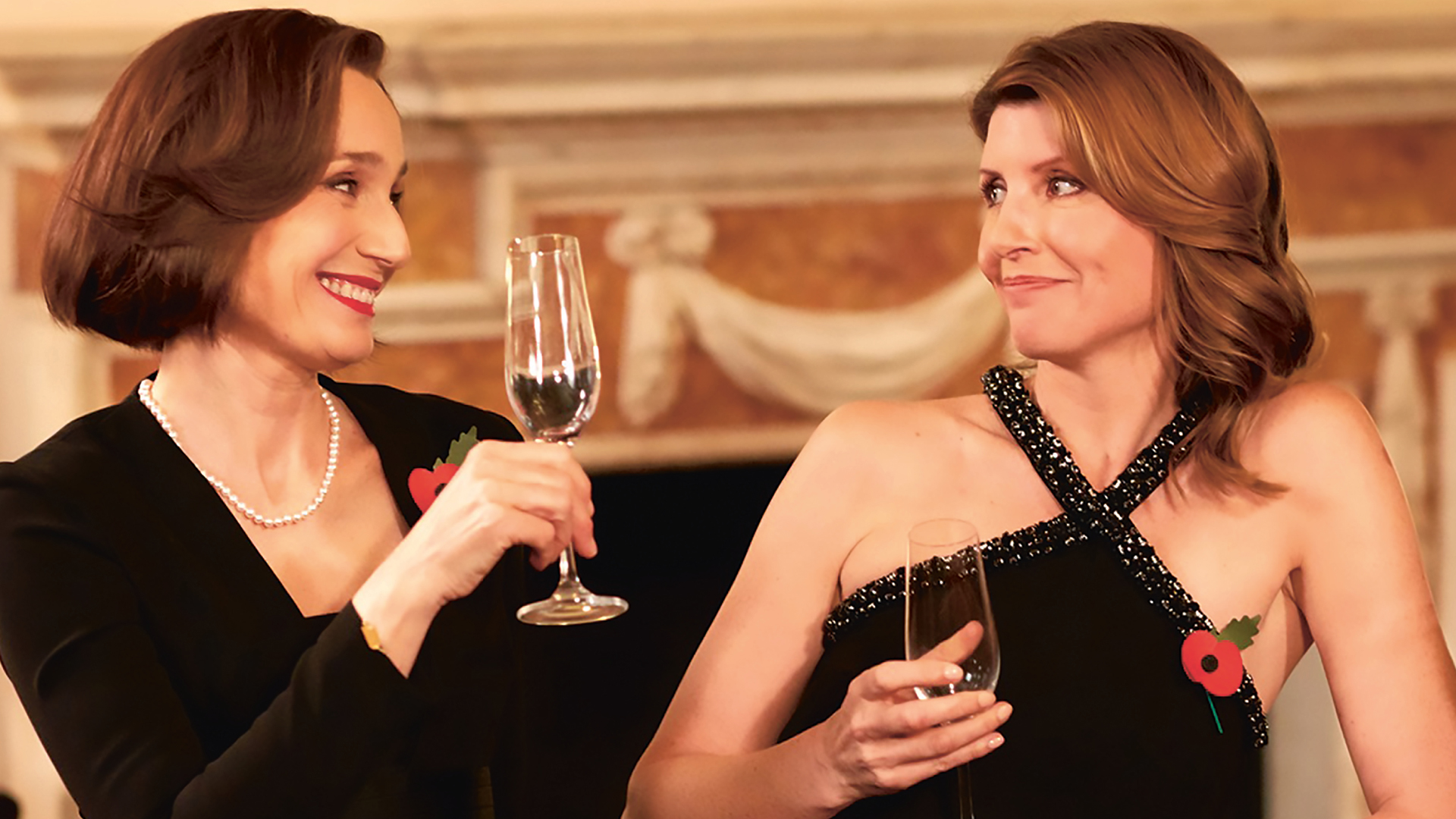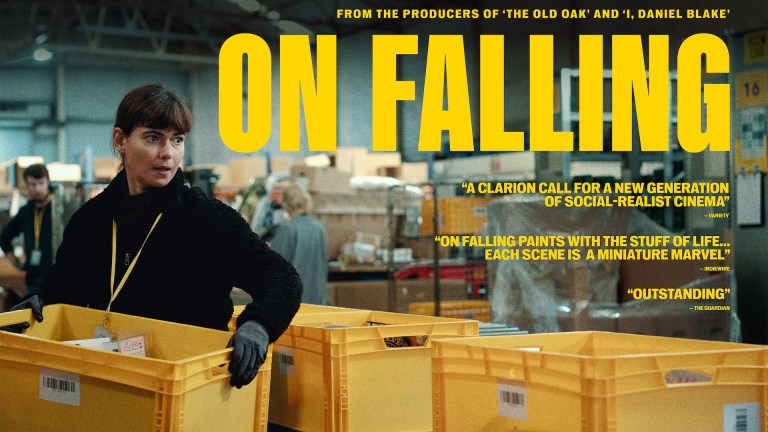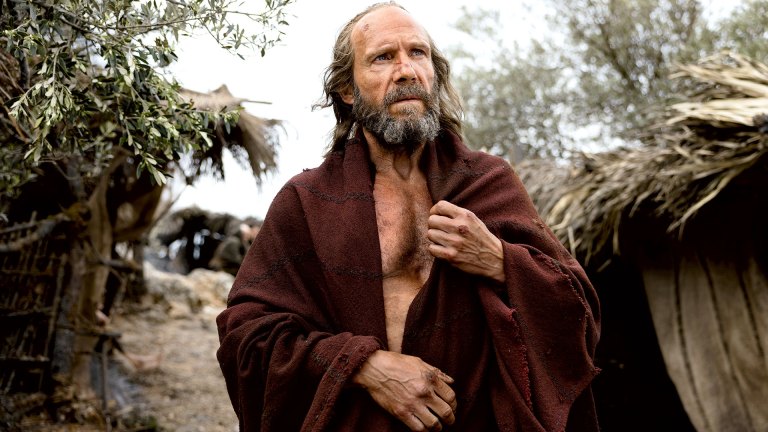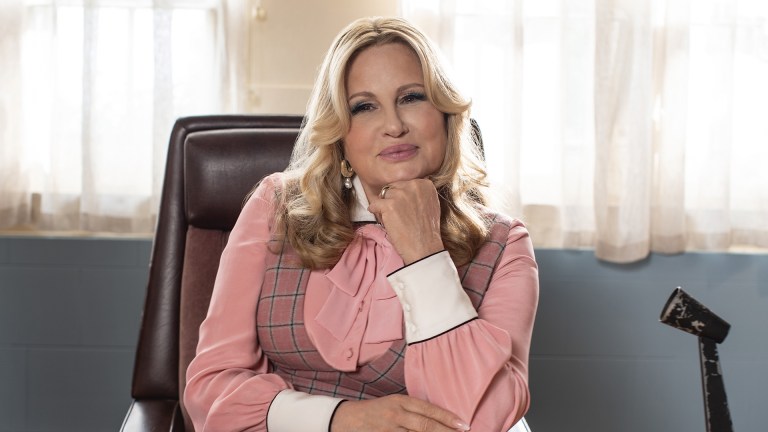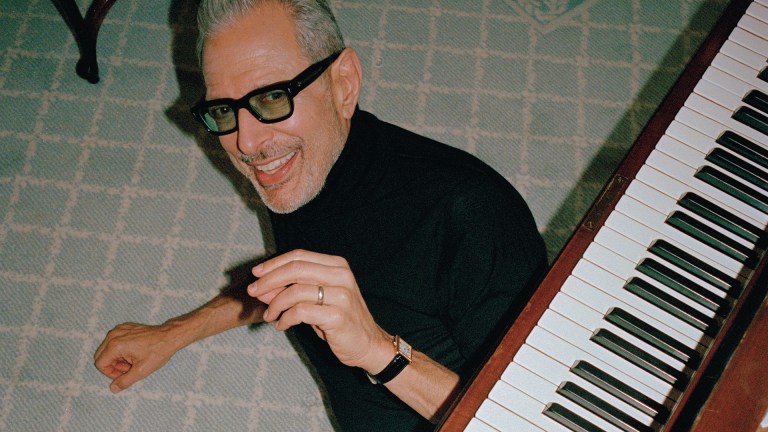It feels like you have to work incredibly hard to have anything stand out because there is so much good TV. You can’t phone something in.
Was Military Wives six weeks well spent?
Oh, definitely. It ticked all boxes. I really liked the idea of working with Kristin [Scott Thomas] so it felt like a mad opportunity to get to play opposite her.
The film has a lovely Odd Couple vibe between your characters.
It does have a completely Odd Couple vibe. It’s such a crazy piece of casting but I get it. When I read the first incarnation of the script, I could see why they thought of me. It’s in my wheelhouse. But I can’t imagine any other film where they would put us together. I found the story incredibly emotional. Even at that early stage it was really moving. I cried at the end of it. Although I am a bit of a crier.
Lots of us will have seen the Military Wives Choirs on television with Gareth Malone, but the story seems made for a Britcom – and Peter Cattaneo has form with The Full Monty.
There’s very few things that most people in the world like, but one is watching people grow and find their voices. And that is what this film felt like. They start in a really rocky place, come together and find their voice. Even though it’s quite traditionally told, it still felt like those women hadn’t been represented, on the big screen anyway.
Advertising helps fund Big Issue’s mission to end poverty
Did the 1980s song choices meet your approval?
There were loads of songs in the script initially, but they all changed. All of them. They ended up going with songs from the same era, they’re not tubthumpers but they are songs that elicit a memory. I was really happy with The Human League, Yazoo and Tears for Fears.
This is not the first time we’ve seen you singing on screen in the last year – there was a memorable rendition of Zombie by The Cranberries with Aisling Bea on This Way Up [which Horgan produces and co-stars in alongside its creator Bea].
Yeah, that was hilarious. The first time we tried to film it every everyone laughed but it got to a point where we were cracking each other up so much but no one else was laughing any more. It is such a beautiful piece of work and such a great showcase for Aisling. There is something about writing a character for yourself that allows you to really play to your strengths – I definitely felt that with Catastrophe.
There’s a real range of stories being told within comedy at the moment.
It feels like you have to work incredibly hard to have anything stand out because there is so much good TV. You can’t phone something in.
Advertising helps fund Big Issue’s mission to end poverty
Do you feel like you helped create this new world order of comedy?
Well, that’s not for me to say, really, is it? You can say it, though! And please do.
Do you see yourself continuing to wear all the hats?
With Merman [Horgan’s production company], we’re making so much at the moment. We produced a film that just went to Sundance by a new young Irish writer and actress called Clare Dunne, about the homeless issue in Dublin. It is called Herself and is about a woman and mother who’s in an abusive relationship – and when she leaves it, she’s got nowhere to go. She’s put into temporary accommodation, living in one bedroom hostels, which is the situation for thousands of people – so she decides to build a house. It could be such a desperate story, but there’s so much hope in it.
Is it easier to get things made now that you’ve had successes? Or do you do you still hear no as often as yes?
You still make pilots that get turned down, you still put forward scripts that don’t get picked up, you still pitch ideas that don’t move forward. But it is easier to get heard. So much of it is to do with what they already have, what feels zeitgeist-y. People change their remit all the time, so you have to be on your toes.
Advertising helps fund Big Issue’s mission to end poverty
Military Wives is in cinemas now
